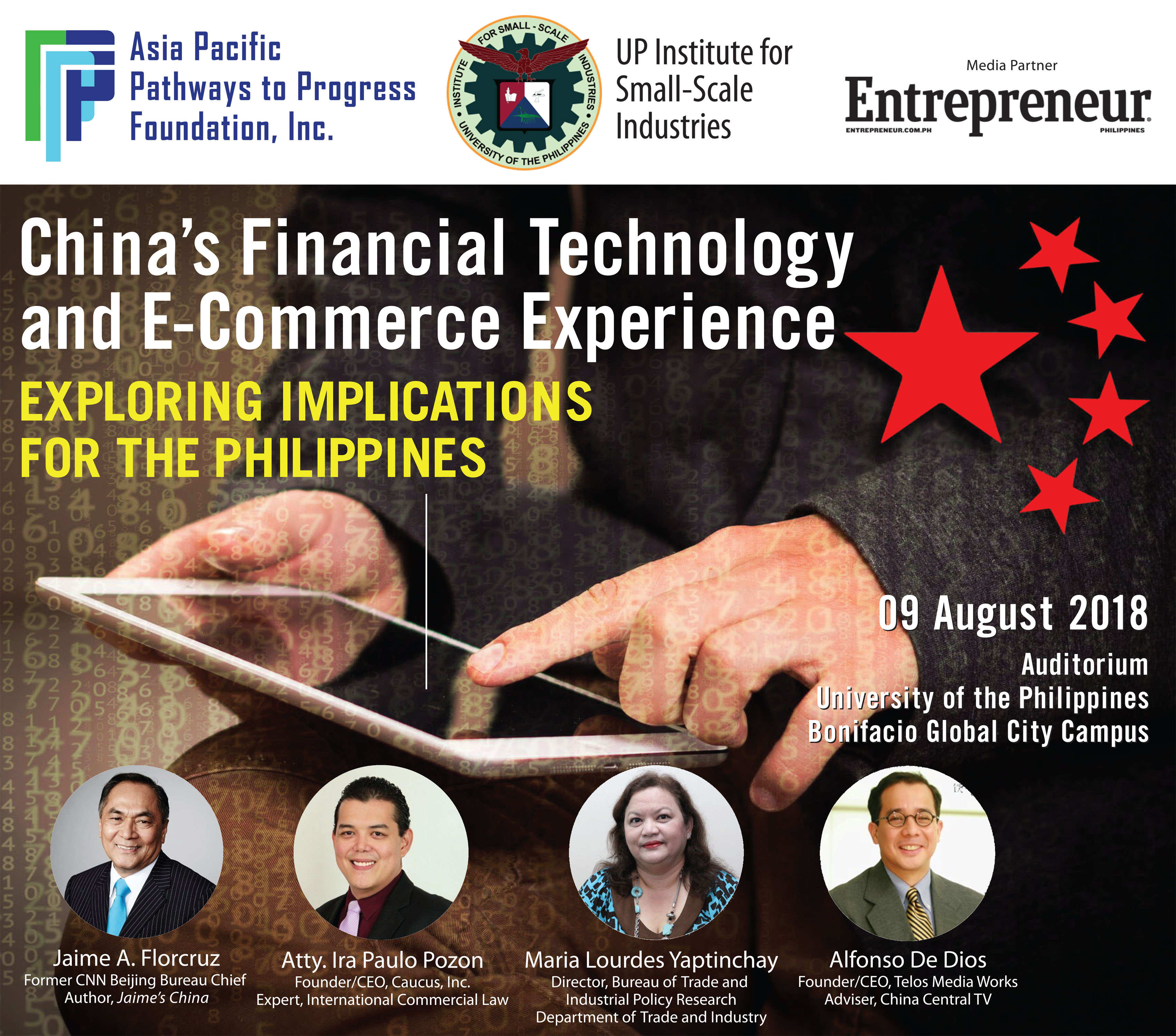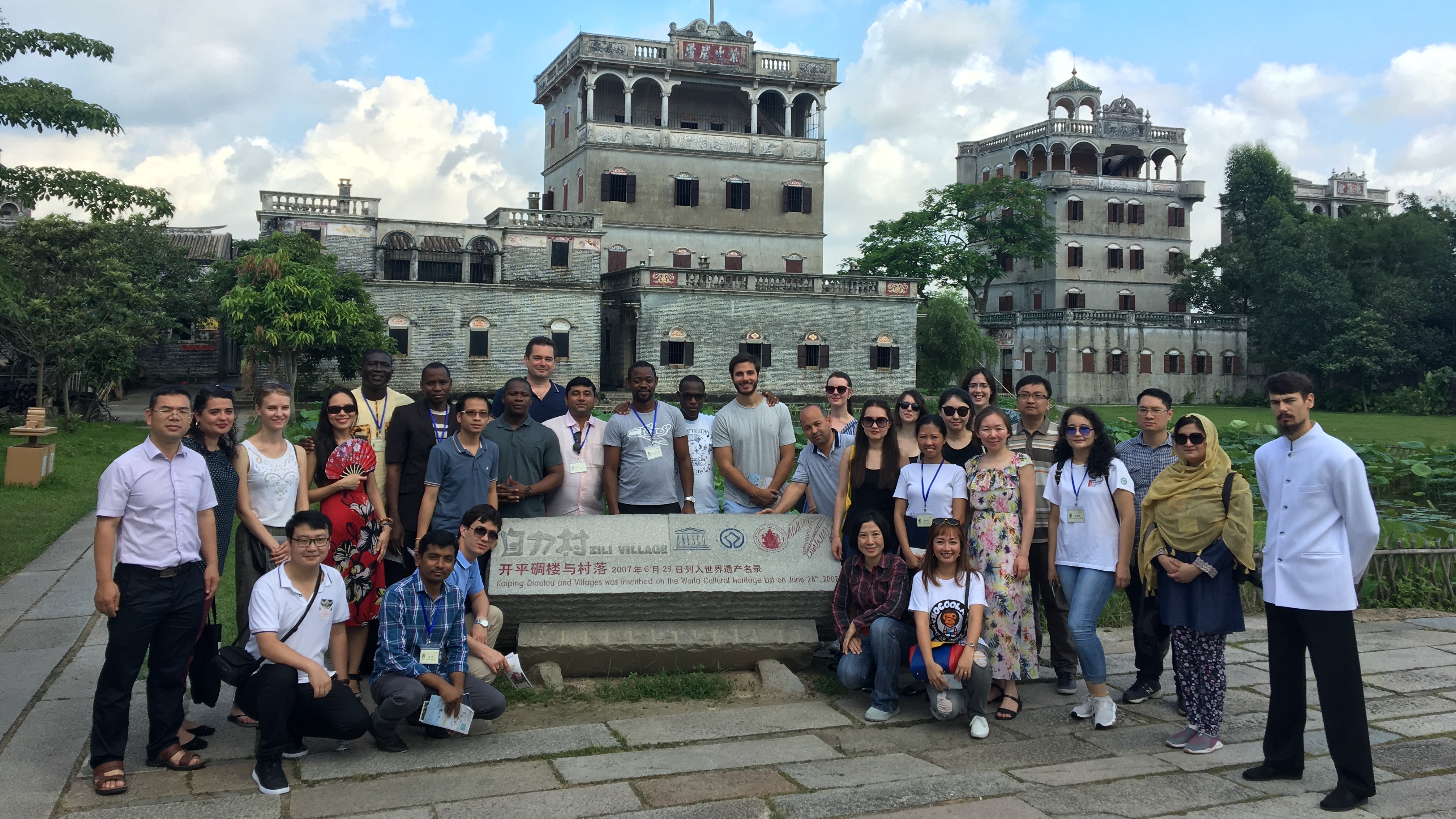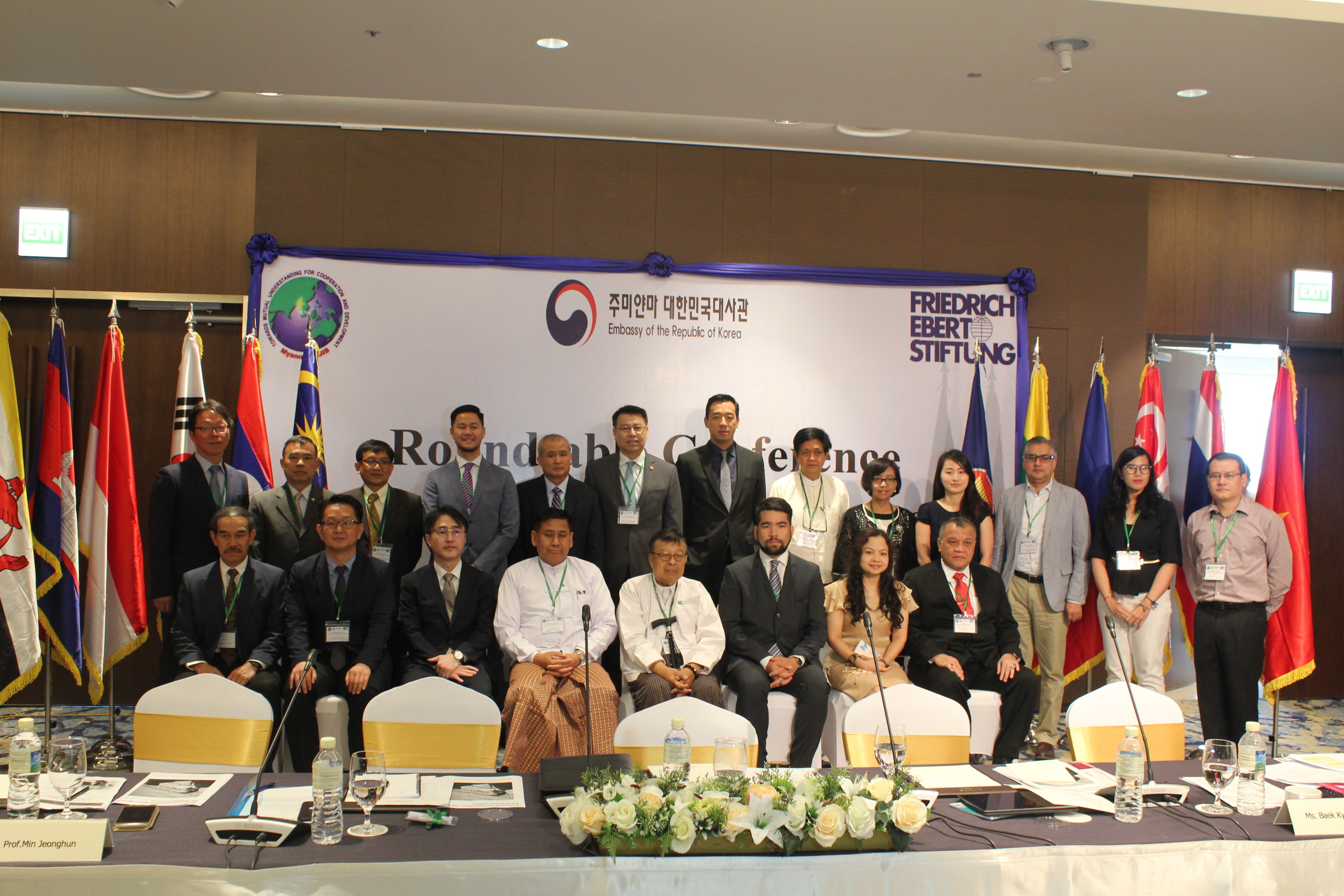News and Events
UPCOMING FORUM : China’s Financial Technology And E-Commerce Experience: Exploring Implications For The Philippines
- Details

Learn more about the opportunities of the Chinese model of Fintech and e-commerce for a more inclusive economic growth and business model in the Philippines and the challenges it faces in the current economic set-up of the country.
The Asia Pacific Pathways to Progress Foundation, Inc. (APPFI), in cooperation with the University of the Philippines’ Institute for Small-Scale Industries, and with the help of the online magazine Entrepreneur Philippines, will be holding a forum to explore China’s Financial Technology and E-Commerce Experience: Exploring Implications for the Philippines.
Recent trends indicate that China is now the global leader in e-commerce and financial technology (Fintech), which has resulted in the rise of entrepreneurial villages, inclusive growth, innovation, technologically literacy, and employment. In connection with this, our activity seeks to explore expert answers to the following questions:
- Since China is a developing country like the Philippines, how can the latter learn from the former’s e-commerce entrepreneurship, especially in rural and village households?
- How can the Chinese model of Fintech and e-commerce promote a more inclusive economic growth and business model in the Philippines?
- Fintech and e-commerce have already gained momentum in the Philippines but are still not as advanced as China’s. What are the challenges, obstacles, and areas for improvement?
- In connection with our foreign economic relations, how can the Philippine and Chinese economies be further integrated by cross-border e-commerce?
Gains of academic exchange: narrative, notion, and network
- Details
With its Belt and Road Initiative diplomacy, China intensifies its engagement with the world by offering programs and exchanges for China Studies scholars and sinologists as part of the initiative’s people-to-people component, in this way allowing scholars to have an in-depth understanding of the country.
I had the opportunity to participate in one of these programs, the Visiting Program for Young Sinologists in Guangzhou. Started in the same year as when the BRI was introduced, VPYS gathers China Studies scholars and sinologists from around the world to further learn Chinese history, culture, language and literature, society, economy, politics, and international relations; and to use this platform to improve their researches. With the success of China’s pioneer cities like Beijing, Hangzhou, Chongqing and Shanghai in hosting VPYS groups, the program opened fellowships in other places like Zhengzhou and Xi’an in 2017—a Chinese signature way of testing its policy and programs. This year, first timer Guangzhou joins the roster of host cities. The program is hosted by the Ministry of Culture and Tourism of the People’s Republic of China, and in my case, organized by Guangdong Province and Jinan University. The fellowship primarily involves lectures, visits and tours, and independent study.

Roundtable Conference On The Situation On The Korean Peninsula
- Details
 A Roundtable Conference on the Situation on the Korean Peninsula was held at Lotte Hotel, Yangon on 15-16 July 2018. It was attended by all ten ASEAN-ISIS members, ASEAN Secretariat and officials from Korea MOFA, Korea National Diplomatic Academy (KNDA), the Ambassador of Republic of Korea and officials, Myanmar-ISIS members, officers from MOFA (Naypyitaw). The event was organized under the auspices of ASEAN-ISIS of which Myanmar-ISIS is the Chair for 2018. The roundtable came at a very opportune time soon after the US-DPRK Summit. Perspectives and views of the ASEAN think tanks were very rich; how ASEAN could play a constructive role for peace and prosperity on the Peninsula after the fast momentum of positive events between North and South Korea and US and DPRK.1
A Roundtable Conference on the Situation on the Korean Peninsula was held at Lotte Hotel, Yangon on 15-16 July 2018. It was attended by all ten ASEAN-ISIS members, ASEAN Secretariat and officials from Korea MOFA, Korea National Diplomatic Academy (KNDA), the Ambassador of Republic of Korea and officials, Myanmar-ISIS members, officers from MOFA (Naypyitaw). The event was organized under the auspices of ASEAN-ISIS of which Myanmar-ISIS is the Chair for 2018. The roundtable came at a very opportune time soon after the US-DPRK Summit. Perspectives and views of the ASEAN think tanks were very rich; how ASEAN could play a constructive role for peace and prosperity on the Peninsula after the fast momentum of positive events between North and South Korea and US and DPRK.1
Pathways to Progress meets with a delegation from CSIS
- Details
Asia Pacific Pathways to Progress met with a visiting delegation from the Washington, D.C.-based think tank Center for Strategic and International Studies (CSIS) for an exchange of views on U.S.’ Indo-Pacific strategy. CSIS was represented by China/Southeast Asia experts Bonnie Glaser, Derek Mitchell, and Scott Kennedy. The participants explored topics such as different interpretations of “Indo-Pacific”, US commitment to the region, and possible impact on the Philippines and the neighborhood.

